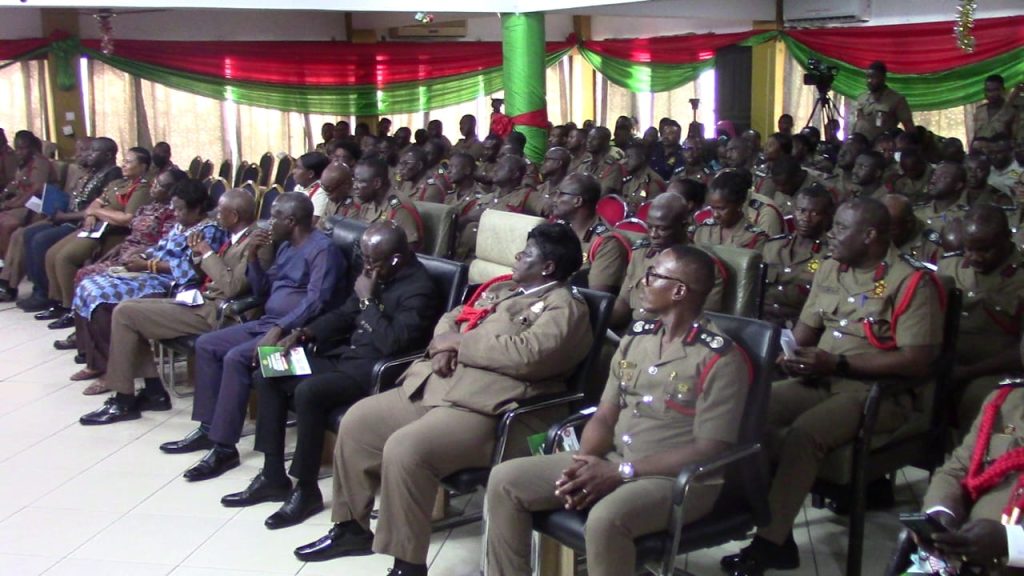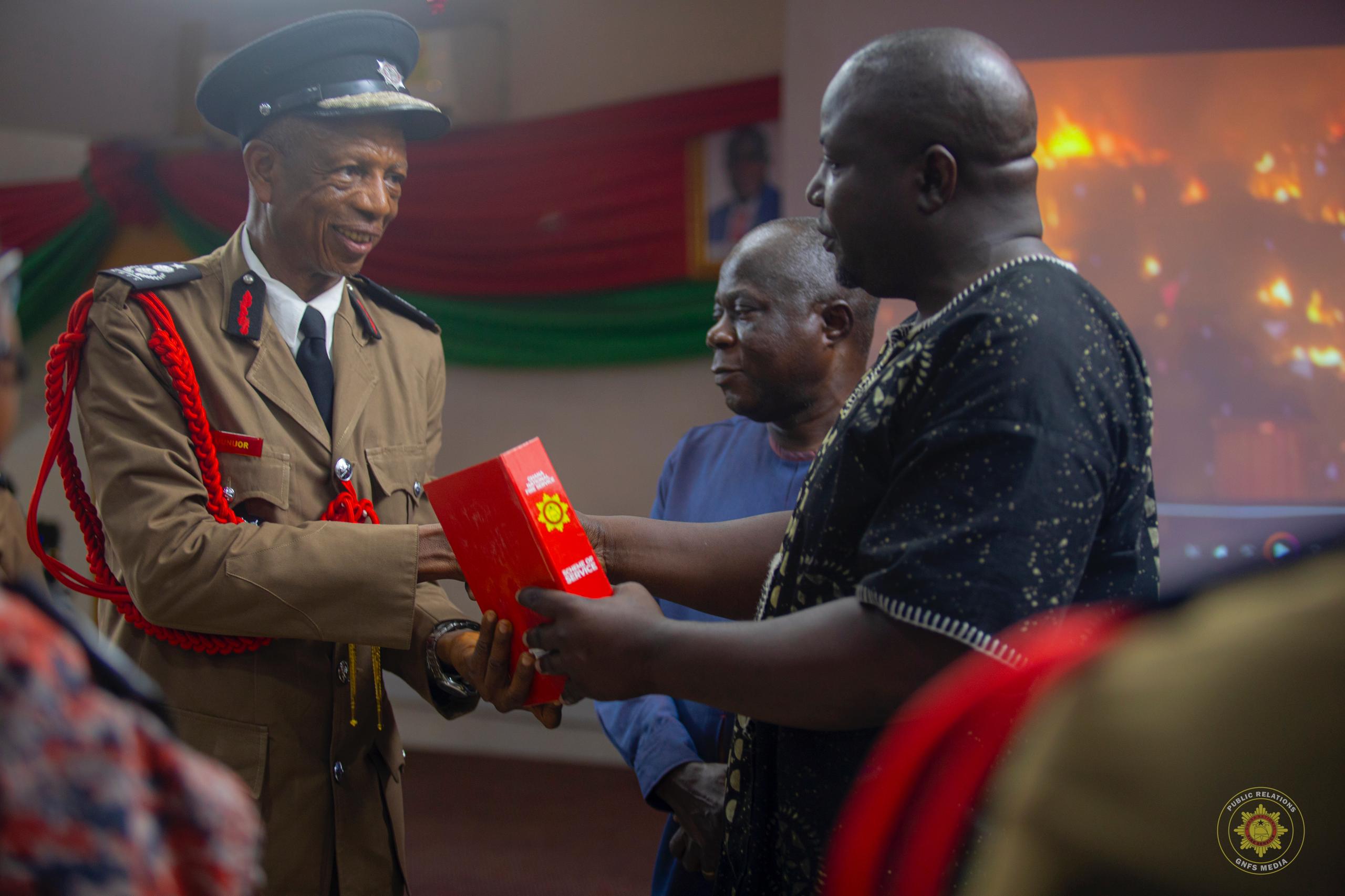The Ghana National Fire Service (GNFS), tasked with the protection of lives and property, has unveiled two transformative documents that will guide the roles and responsibilities of its personnel. The launch, held in Accra, marks a significant step toward strengthening the GNFS’s mission.
The Seven-Year Strategic Plan (2024-2030) has been crafted to provide a clear roadmap for fire service personnel, eliminating any ambiguity in the GNFS’s aspirations. It aims to ensure efficient service delivery and address the country’s social and economic needs.
In a speech delivered on his behalf by Solomon Tetteh Mensah, the Director of Research, Statistics, and Information Management at the Ministry of the Interior, Minister Henry Quartey outlined the key aspects of a new policy document aimed at improving the human resource management of the service. The policy, he explained, sets clear guidelines for defining job roles, responsibilities, required skills, and competencies for each position. It also provides freshly recruited and enlisted officers with a structured pathway for career development, helping them make informed decisions about their professional growth within the service.
Quartey highlighted that the implementation of this policy would eliminate ambiguities and promote fairness in assigning roles, ensuring that the right people are placed in the right positions. This, he believes, will lead to more effective and efficient performance, supporting the achievement of organizational goals in a harmonious work environment.

Reflecting on the service’s 61 years of existence, Mensah emphasized the importance of building on the solid foundation laid by past leaders while exploring new avenues for further progress. He introduced the 7-Year Strategic Plan as a crucial tool for the effective management of the service. This carefully crafted plan aims to guide both current and future leadership toward steady, sustainable development that aligns with modern needs.
Additionally, the plan seeks to ensure the efficient use of limited resources, reduce arbitrariness, and prevent unnecessary duplication of tasks. Mensah praised the service for investing in this progressive initiative, commending the current management for their promising, reassuring leadership.
Additionally, the Scheme of Service, which accompanies the Strategic Plan, is designed to support career development within the fire service. It outlines specific job roles, responsibilities, skills, and competencies, enabling personnel to make informed decisions about their career growth. Freshly recruited officers will benefit from this scheme, ensuring they have a clear path for advancement.

In his speech, Chief Fire Officer Mr. Julius Kuunuor highlighted that the launch of the Strategic Plan signifies the beginning of a new era for the GNFS—one focused on professionalism, efficiency, and visionary emergency response. He acknowledged that the successful implementation of the plan is a shared responsibility. While management and officers of the GNFS bear the primary responsibility, they will work closely with the Governing Council and other stakeholders to achieve the goals outlined in the plan.
Mr. Kuunuor emphasized the importance of collaboration with all stakeholders to create synergy in fire management and contribute to the realization of the Sustainable Development Goals (SDGs).









